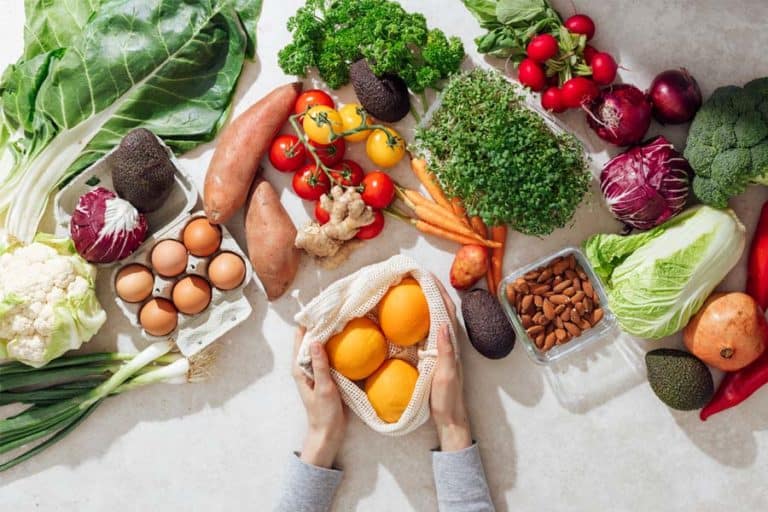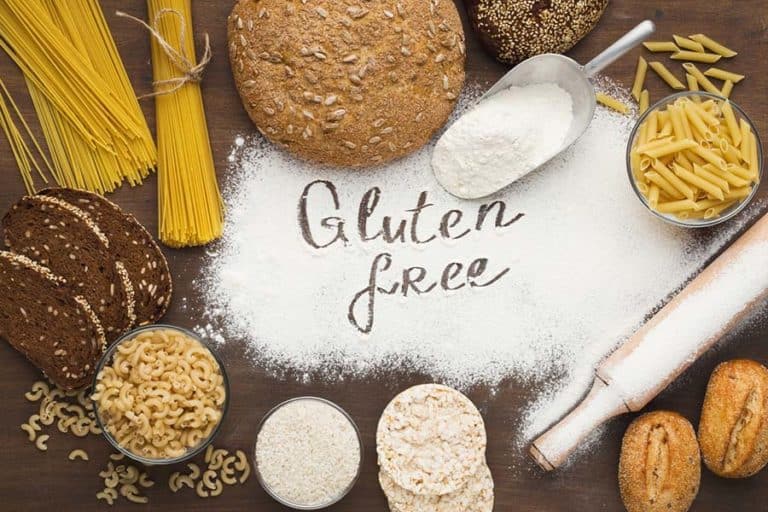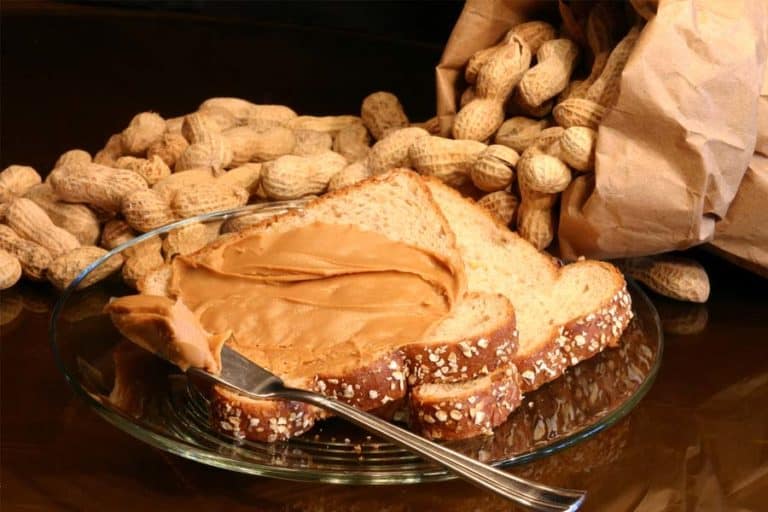All You Need To Know About Vegan Collagen

What is collagen | Collagen in the body | Vegan collagen-making process | benefits | alternatives | bottom line
Collagen is a protein found in the connective tissue of all animals. This protein is what gives skin its elasticity and strength.
Since collagen is primarily found in animals, finding vegan collagen supplements may seem out of the question. However, there are some plant-based collagen supplements on the market.
What is vegan collagen?
Choosing the right collagen products, whether supplement capsules or beauty products, starts with understanding what collagen and its vegan counterpart are made of.
Collagen
Collagen is an essential structural protein found in all animal connective tissues. It is also the most abundant protein [1]Journal of biological chemistry: Mapping the Ligand-binding Sites and Disease-associated Mutations on the Most Abundant Protein in the Human, Type I Collagen* in the human body. It is found in our skin, muscles, tendons, ligaments, and bones. Commonly available collagen products on the market are collagen peptides sourced from mammals or fish.
Vegan collagen
Plant-based collagen is structurally similar to animal-derived collagen. However, unlike animal-derived collagen, vegan collagen is made from genetically modified yeast and bacteria. [2]Springer Link: Recombinant microbial systems for the production of human collagen and gelatin A digestive enzyme is added to make it resemble the collagen produced in the human body.
Vegan collagen products are still new in the market and may be limited in availability. Nevertheless, there are several vegan collagen boosters that can enhance your body’s capacity to produce collagen. These vegan collagen boosters are made from plant-based nutrients that have been shown to promote collagen production.
Collagen production in the body
Collagen synthesis in the human body happens through the combination of three amino acids [3]Cleveland Clinic: Collagen and a few other vitamins and minerals.
The amino acids glycine, proline, and hydroxyproline combine with copper, zinc, manganese, and vitamin C to form human collagen proteins. The collagen thus produced becomes the building block of several tissues in the body, including skin, hair, nails, tendons, ligaments, and cartilage.
The body’s natural collagen production begins to slow down as we age, leading to visible signs of aging like wrinkles, sagging skin, thinning hair, brittle nails, and joint pain.
This is when collagen supplements enter the picture. These supplements (generally animal based) boost collagen production in the body and help to mitigate the signs of aging.
Collagen-boosting dietary supplements are mostly animal-sourced. However, vegan collagen supplements are also becoming increasingly popular.
Several vegan collagen boosters on the market are equally beneficial and can help stimulate the body’s collagen production.
What is vegan collagen made of?
As mentioned above, vegan collagen is produced using genetically modified yeast and bacteria.
During production, the core human genes that are responsible for coding collagen are inserted into the yeast or bacteria. These genes then produce vegan collagen that is structurally similar to regular collagen.
The addition of a digestive enzyme like pepsin is often used to make vegan collagen more bioavailable. Bioavailability [4]National Library of Medicine: Drug Bioavailability is a measure of how well your body can absorb and use a nutrient. Vegan collagen that is more bioavailable is better able to support your body’s needs.
Vegan collagen boosters
When you look for vegan alternatives to collagen supplements, read the label carefully. The vegan collagen product you choose will likely fall under the category of “vegan collagen boosters.” These may simply be nutrients that stimulate collagen production in the human body.
Usually, such products comprise a combination of nutrients, including vitamin C, proline, and glycine. While vegan collagen products may not contain any actual collagen, they can help support your body’s collagen production.
Vitamin C is a key player in the synthesis of collagen. It helps to promote wound healing and provides antioxidant protection against environmental damage. Proline and glycine are amino acids needed for the production of collagen.
Vegan collagen boosters may also contain other nutrients like copper and zinc. These minerals are needed for the proper function of enzymes that are involved in collagen synthesis.
Benefits of vegan collagen
The benefits of vegan collagen are similar to the benefits of animal-sourced collagen. Additionally, vegan collagen has been observed to have more safety and reproducibility [5]National Library of Medicine: Recombinant microbial systems for the production of human collagen and gelatin across batches.
Here are some of the benefits of vegan collagen:
1. Low risk of allergies
Animal-based collagen products carry a potential risk of transmission of illness. Vegan collagen is generally safer than regular collagen and has fewer chances of causing allergic reactions.
Plant-based versions have to be generated in a lab-based controlled environment from scratch. This leaves little scope for possible contamination or infection getting transmitted through vegan collagen products.
2. Skin, nails, and hair health
Vegan collagen can help support skin elasticity and health by reducing inflammation and improving hydration. Studies [6]Wiley Online Library: Effects of hydrolyzed collagen supplementation on skin aging: a systematic review and meta-analysis have shown that hydrolyzed collagen can positively impact skin health at the level of wrinkles, hydration, elasticity, and firmness.
3. Joint health
Collagen is also important for joint health. It helps to lubricate the joints and prevent wear and tear. Studies have observed that vegan collagen supplements may also help reduce joint pain associated with arthritis and improve joint health. [7]Wiley Online Library: A double-blind, placebo-controlled, randomised, clinical study on the effectiveness of collagen peptide on osteoarthritis
4. Heart health
There’s some evidence to suggest that plant-based collagen can help improve heart health by reducing cholesterol levels and blood pressure. If you’re looking for a way to support your heart health, vegan collagen is definitely worth considering.
5. Cost efficiency
Plant-based collagens are typically more cost-effective than animal-based collagens because they’re more readily available. Animal-based collagens require special procedures to extract them from the animal tissue, which drives up the cost. Plant-based collagens are less expensive to produce because they don’t require these special procedures.
Vegan collagen alternatives
Vegan collagen comes in many different forms, each with its own unique set of benefits. Here are just a few of the most popular types of vegan collagen and the benefits they offer:
Marine Collagen
Marine collagen is derived from seaweed, algae, and other ocean plants. It is rich in vitamins A and E and minerals like zinc, magnesium, calcium, and iron. Marine collagen can help to hydrate the skin and reduce inflammation.
Bamboo silica
Bamboo is naturally rich in nutrients required for the production of collagen, including vitamin C, copper, zinc, and silica. Studies [8]National Library of Medicine: Use of silicon for skin and hair care: an approach of chemical forms available and efficacy have shown that silica is central to the body’s capacity to build and absorb collagen. Thus, bamboo silica can help to improve skin elasticity, joint flexibility, and bone health.
Soybean peptide
Recent research [9]Research Gate: Effects of soybean peptide and collagen peptide on collagen synthesis in normal human dermal fibroblasts has shown that soybean peptide can increase type 1 collagen and enhance the skin’s ability to synthesize hyaluronic acid. This makes it an excellent vegan collagen alternative for maintaining healthy skin.
The bottom line
Vegan collagen is an excellent cruelty-free anti-aging and health-boosting supplement option.
It is rich in nutrients required for collagen production and can help to improve skin, nails, hair, and joint health. Each vegan collagen product comes with its own unique set of benefits. Talk to your healthcare provider to determine which vegan collagen option is right for you.
References
| ↑1 | Journal of biological chemistry: Mapping the Ligand-binding Sites and Disease-associated Mutations on the Most Abundant Protein in the Human, Type I Collagen* |
|---|---|
| ↑2 | Springer Link: Recombinant microbial systems for the production of human collagen and gelatin |
| ↑3 | Cleveland Clinic: Collagen |
| ↑4 | National Library of Medicine: Drug Bioavailability |
| ↑5 | National Library of Medicine: Recombinant microbial systems for the production of human collagen and gelatin |
| ↑6 | Wiley Online Library: Effects of hydrolyzed collagen supplementation on skin aging: a systematic review and meta-analysis |
| ↑7 | Wiley Online Library: A double-blind, placebo-controlled, randomised, clinical study on the effectiveness of collagen peptide on osteoarthritis |
| ↑8 | National Library of Medicine: Use of silicon for skin and hair care: an approach of chemical forms available and efficacy |
| ↑9 | Research Gate: Effects of soybean peptide and collagen peptide on collagen synthesis in normal human dermal fibroblasts |







